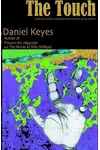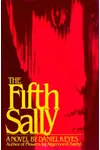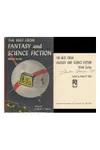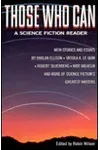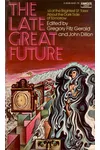Picture a Brooklyn-born storyteller who wove tales of the human mind that left readers questioning intelligence and identity—meet Daniel Keyes! Best known for his heart-wrenching sci-fi classic Flowers for Algernon, Keyes blended psychological depth with speculative wonder, crafting stories that linger long after the final page.
From his humble beginnings to his rise as a literary icon, Keyes’s journey is as compelling as his novels. His unique lens on science, ethics, and humanity made him a standout in science fiction and beyond.
The Making of Daniel Keyes
Born on August 9, 1927, in Brooklyn, New York, Daniel Keyes grew up in a working-class family. His early years were shaped by a love for storytelling, but life wasn’t all books and dreams. At 17, he joined the U.S. Maritime Service during World War II, working on cargo ships—an experience that fueled his knack for vivid, grounded characters. After the war, Keyes earned a psychology degree from Brooklyn College, sparking his fascination with the human mind. He dabbled in publishing, editing pulp magazines, before diving into teaching and writing, a path that led to his literary breakthrough.
Daniel Keyes’s Unforgettable Stories
Keyes’s masterpiece, Flowers for Algernon (1966), started as a 1959 short story that won a Hugo Award. Expanded into a novel, it follows Charlie Gordon, a man with intellectual disabilities who undergoes an experimental procedure to boost his IQ, paralleled by a lab mouse named Algernon. The story’s diary-style narrative and emotional depth explore intelligence, identity, and the ethics of scientific ambition. It’s a tearjerker that’s sold over 5 million copies and inspired adaptations, including the 1968 film Charly.
Keyes didn’t stop there. His 1981 novel The Minds of Billy Milligan dives into the true story of a man with dissociative identity disorder, showcasing Keyes’s knack for psychological realism. Other works, like The Touch (1968), tackle radiation’s human toll, while Unveiled Secrets (1994) blends biography and fiction. His style—accessible yet profound, with a focus on human struggles—made complex ideas relatable, cementing his place in speculative fiction.
Why Daniel Keyes Matters
Daniel Keyes’s work transcends sci-fi, challenging readers to grapple with ethical dilemmas and the essence of humanity. Flowers for Algernon remains a staple in classrooms, sparking discussions on empathy and scientific responsibility. His ability to humanize complex issues influenced writers and filmmakers, while his teaching career at Ohio University nurtured new talent. Keyes, who passed away in 2014, left a legacy of stories that probe the mind and heart, urging us to value compassion over intellect.
- Born: August 9, 1927, Brooklyn, New York
- Key Works: Flowers for Algernon, The Minds of Billy Milligan
- Awards: Hugo (1960), Nebula (1966) for Flowers for Algernon
- Died: June 15, 2014
About Daniel Keyes
Ready to explore the mind-bending world of Daniel Keyes? Grab Flowers for Algernon and dive into his soul-stirring sci-fi today!





